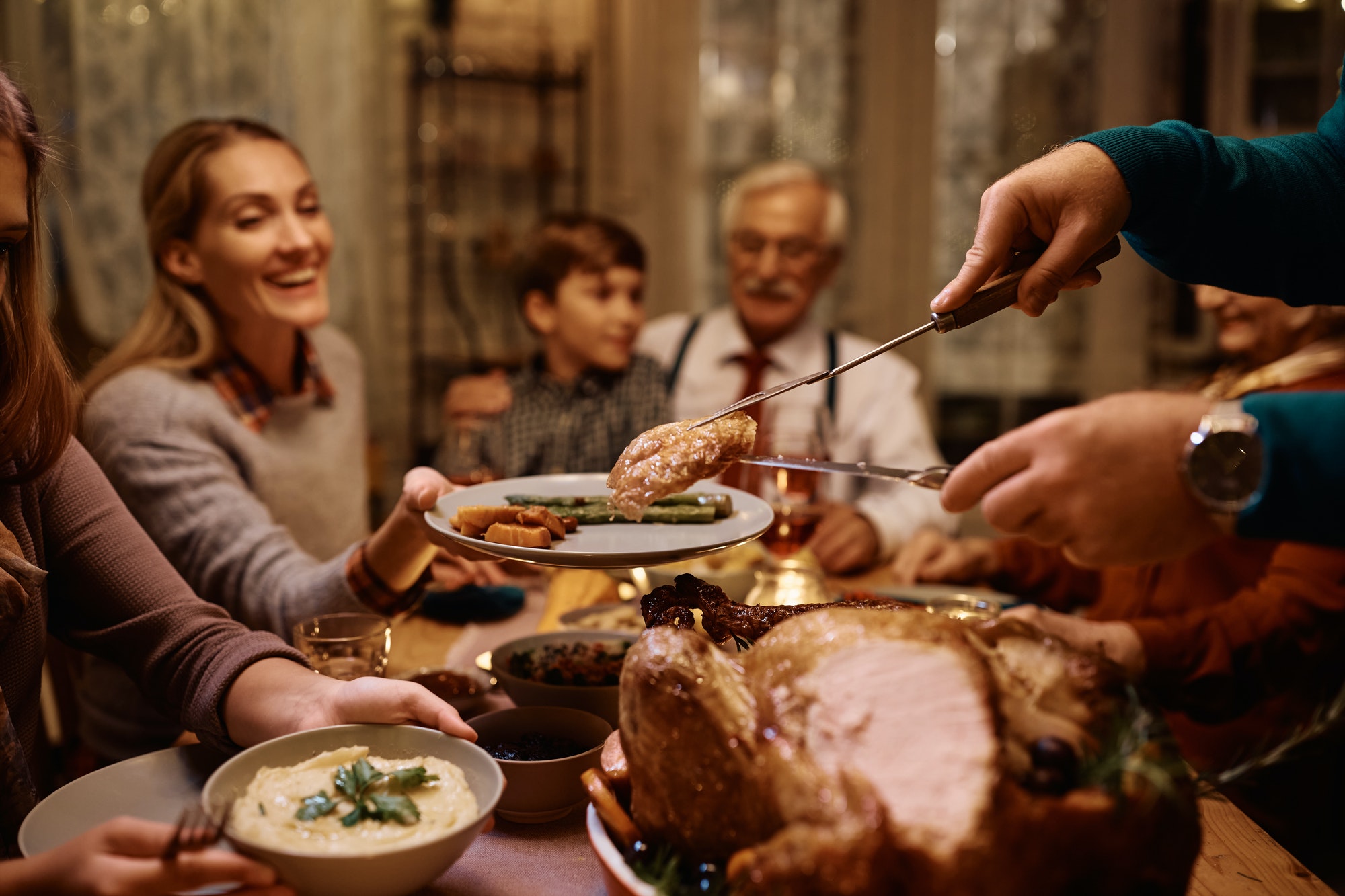The holiday season is a time of joy, celebration, and making cherished memories with friends and family. Whether you’re traveling to see loved ones, decorating your home with festive lights, or indulging in delicious holiday feasts, there’s a sense of warmth and happiness in the air. However, amidst all the merriment and excitement, it’s important to remember that holiday accidents can happen.
Holiday accidents can cast a dark shadow over what should be a time of pure delight. From car crashes on icy roads to slip and fall mishaps in snowy parking lots, the types of accidents that can occur during the holidays are numerous.
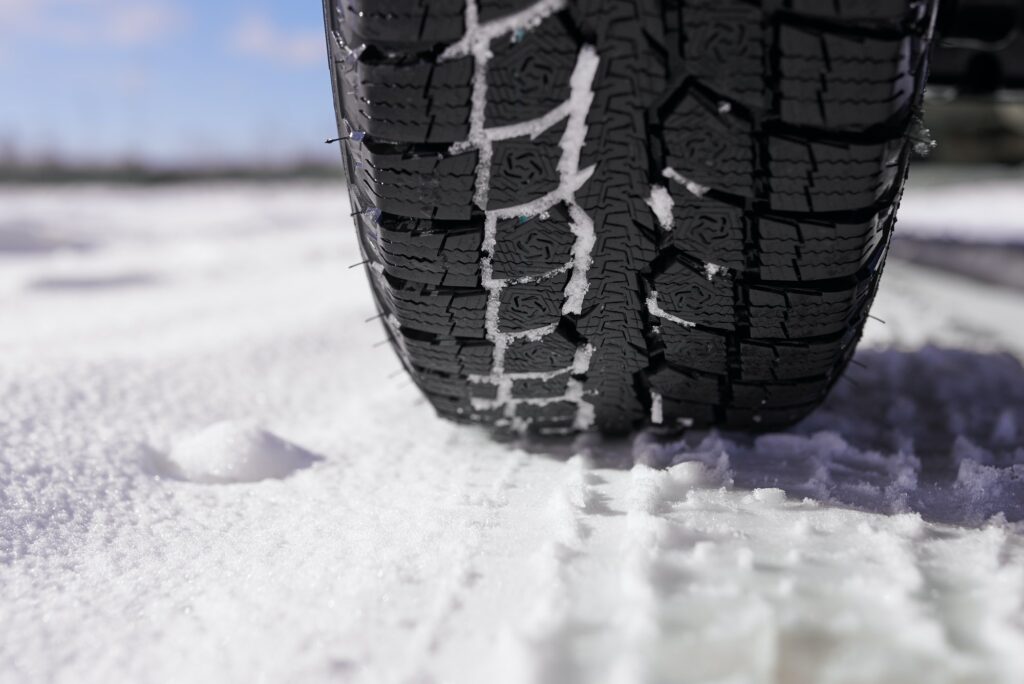
Holiday Traffic Accidents
The holiday season often involves a significant amount of travel, with families and friends coming together to celebrate. While the thought of reuniting with loved ones is heartwarming, it also means increased traffic on the roads, which can lead to an elevated risk of traffic accidents. Here are some common holiday traffic accidents to be aware of:
Car Crashes During Holiday Travel
One of the most common types of accidents during the holidays involves car crashes. The combination of increased traffic, adverse weather conditions, and sometimes, the rush to reach one’s destination can create a perfect storm for accidents.
Factors contributing to car accidents during the holidays include speeding, impaired driving (due to alcohol or other substances), distracted driving (often exacerbated by phone usage), and fatigue from long drives.
Pedestrian Accidents
As holiday shoppers flood the streets and holiday events draw crowds, the risk of pedestrian accidents rises. It’s not uncommon for pedestrians to be struck by vehicles, especially in areas with poor visibility or inadequate crosswalks.
Pedestrian accidents can result in severe injuries, as pedestrians have little protection against the force of a vehicle. These injuries can include broken bones, head injuries, and even fatalities.
Preventing Holiday Traffic Accidents
- Plan Your Routes and Check Weather Conditions: Before embarking on your holiday journey, take the time to plan your route, considering factors like traffic patterns, road closures, and weather conditions. Utilize GPS apps to stay informed about traffic updates and alternative routes.
- Avoid Distracted and Impaired Driving: Stay focused on the road and avoid distractions like texting, talking on the phone, or fiddling with the radio. Never drink and drive or get behind the wheel if you’re impaired by alcohol, drugs, or fatigue.
- Buckle Up and Ensure Child Safety: Seat belts save lives. Ensure that everyone in your vehicle is properly buckled up, and use age-appropriate car seats for children.
- Obey Speed Limits and Traffic Laws: Speeding and reckless driving increase the likelihood of accidents. Obey posted speed limits and follow all traffic laws, including yielding to pedestrians at crosswalks.
By taking these precautions, you can help reduce the risk of being involved in a holiday traffic accident.
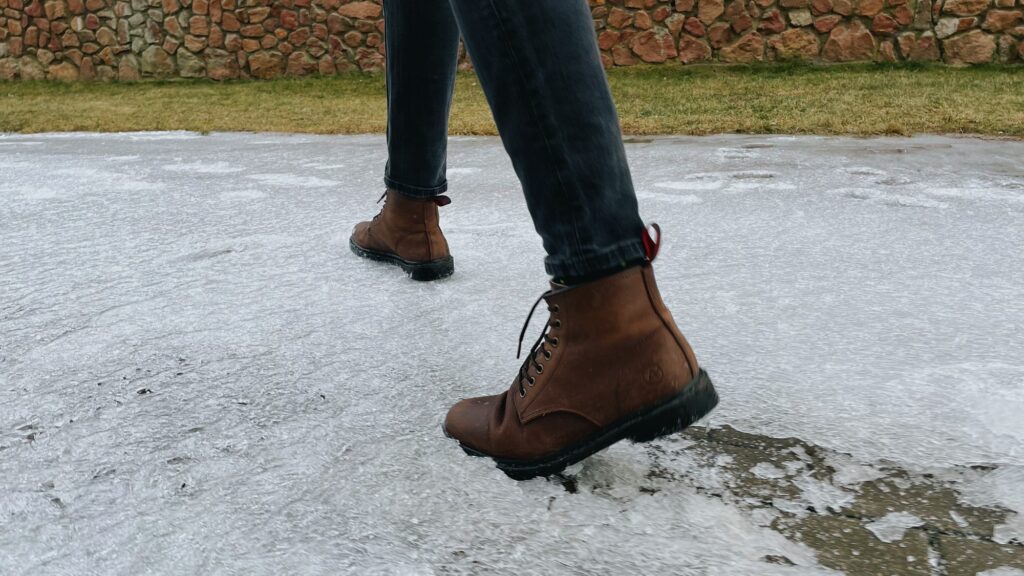
Slip and Fall Accidents
While many associate holiday accidents with car crashes and travel-related mishaps, slip and fall accidents are another common concern during the holiday season. Slip and fall accidents can occur in various settings, both indoors and outdoors, often as a result of winter weather conditions or negligence. Here’s a look at some common scenarios:
Icy Parking Lots
In regions where winter brings freezing temperatures, icy parking lots are a common hazard during the holiday season. Melting snow can refreeze, creating patches of ice that can lead to slip and fall accidents.
Wet Floors in Stores and Restaurants
Holiday shopping and dining are popular activities, and with increased foot traffic come potential hazards. Spills and wet floors can result from a variety of causes, including inclement weather, spills from holiday shoppers, or even inadequate cleaning.
Slippery surfaces in stores, malls, and restaurants can catch unsuspecting patrons off guard, causing them to slip and fall.
Preventing Slip and Fall Accidents
- Proper Footwear and Traction: Wearing appropriate footwear with good traction is important during the winter months. Choose shoes or boots with non-slip soles to reduce the risk of slipping on icy or wet surfaces.
- Awareness of Surroundings: Pay close attention to your surroundings, especially when navigating areas with the potential for slippery conditions. Walk cautiously and avoid distractions like texting while walking.
- Property Owner Responsibility: Property owners and businesses have a responsibility to maintain reasonably safe premises for their patrons.
By taking these precautions and being mindful of your surroundings, you can help reduce the risk of slip and fall accidents during the holiday season.
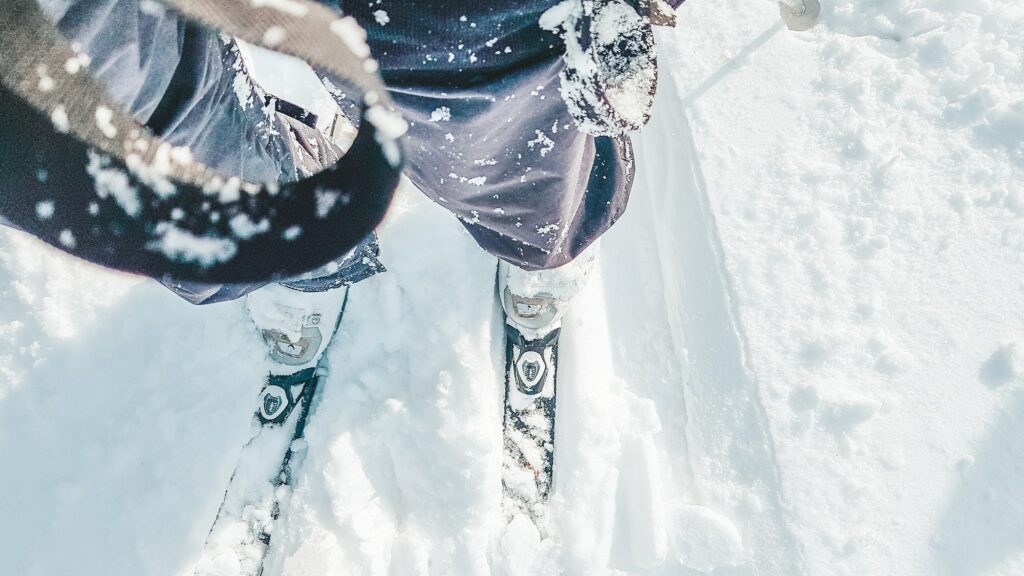
Recreational Accidents
The holiday season often provides opportunities for both indoor and outdoor recreational activities. Whether you’re hitting the slopes for some winter sports or enjoying water-based activities in a warmer climate, it’s important to be aware of potential hazards and take precautions to ensure your safety. Here are some common types of recreational accidents during the holidays:
Skiing and Snowboarding Mishaps
Many people look forward to skiing and snowboarding trips during the winter holidays. These activities can lead to accidents, particularly among beginners or those who don’t take proper precautions.
Common skiing and snowboarding accidents include collisions with other skiers or snowboarders, falls resulting in fractures or sprains, and accidents on ski lifts.
Water Sports and Swimming Pool Incidents
In warmer holiday destinations or during holiday cruises, water sports and swimming pool activities are popular. However, accidents can occur due to a lack of familiarity with water conditions, poor supervision, or equipment failure.
Accidents in swimming pools can involve slip and falls on wet surfaces, diving accidents, or incidents related to overcrowding.
Preventing Recreational Accidents
- Training and Skill Development: If you’re planning to engage in activities like skiing or snowboarding, consider taking lessons from a certified instructor. Proper training can help reduce the risk of accidents.
- Safety Equipment: Wear the appropriate safety gear, such as helmets, life jackets, and protective padding, when engaging in recreational activities. Ensure that your equipment is in good condition and fits properly.
- Observe Rules and Guidelines: Follow the rules and guidelines established for the specific recreational activity.
- Supervision: If you have children or inexperienced individuals in your group, provide adequate supervision to ensure their safety during recreational activities.
- Stay Informed: Be aware of the current weather conditions and any potential hazards related to the activity.
Taking precautions while engaging in recreational activities can help minimize the risk of accidents and injuries during your holiday celebrations.
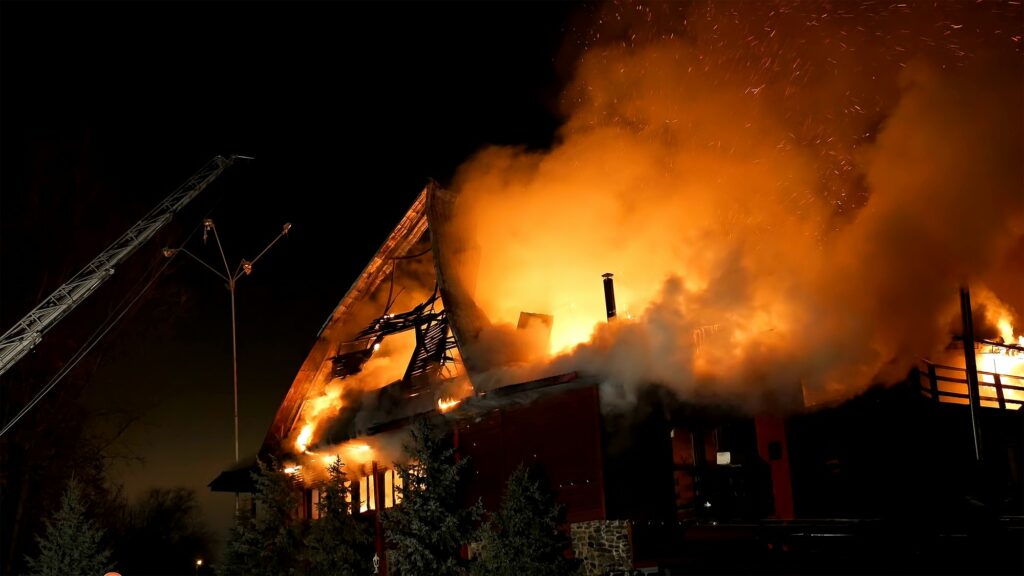
Fire-Related Accidents
Open flames from candles and other sources are commonly used as decorations during holiday gatherings, further increasing the potential for fire-related incidents. Here’s a look at some common types of accidents associated with open flames during the holidays:
Burns and Injuries from Open Flames
Decorative candles, open fireplaces, and even holiday cooking can pose risks of burns and injuries. Loose clothing, children playing near open flames, and lack of proper supervision can all contribute to these accidents.
Fire-related accidents can result in burns ranging from minor to severe, as well as smoke inhalation injuries.
Preventing Fire-Related Accidents:
- Candle Safety: Keep candles in sturdy holders, away from flammable materials, and place them on stable surfaces. Don’t leave burning candles unattended, especially in homes with pets or small children.
- Supervise Open Flames: If you have open flames, such as those in a fireplace or outdoor fire pit, always supervise them closely. Use safety screens and maintain a safe distance from the flames.
- Fire Extinguishers and First Aid: Have fire extinguishers readily available and a well-stocked first-aid kit to help treat minor burns and injuries promptly.
By taking these precautions and being cautious with open flames, you can help reduce the risk of fire-related accidents during your holiday celebrations.

Food Poisoning
The holiday season is a time of feasting and indulging in delicious meals, but unfortunately, it’s also a time when foodborne illnesses can become a concern. Food poisoning can quickly turn a joyous holiday gathering into a health crisis, causing discomfort and sometimes severe illness.
Understanding the risks and taking precautions is important to ensure that your holiday meals are not marred by foodborne illnesses. Here’s a look at some types of food poisoning:
Contaminated Food at Holiday Gatherings
Large holiday gatherings often involve preparing and serving significant quantities of food. Improper food handling and storage can lead to contamination, potentially affecting many people.
Foodborne pathogens like Salmonella, E. coli, and norovirus can thrive when food is left out too long, not cooked to the appropriate temperature, or cross-contaminated with raw ingredients.
Restaurant-Related Foodborne Illnesses
Many people choose to dine out during the holiday season, whether for convenience, to celebrate, or while traveling. Restaurants and food vendors may experience increased business, which can sometimes lead to lapses in food safety.
Foodborne illnesses can result from consuming contaminated food at restaurants, especially if proper hygiene and food handling practices are not followed.
Preventing Food Poisoning
- Safe Food Handling: When preparing holiday meals at home, practice safe food handling procedures. Wash hands and cooking utensils thoroughly, avoid cross-contamination by separating raw and cooked foods, and refrigerate leftovers promptly.
- Cooking Temperatures: Use a food thermometer to ensure that meat, poultry, and seafood reach the recommended internal temperatures to kill harmful bacteria. Follow safe cooking guidelines for specific dishes.
- Safe Storage: Refrigerate perishable foods promptly to prevent bacterial growth. Leftovers should be stored in airtight containers and consumed within a reasonable time frame.
- Restaurant Selection: Choose reputable restaurants and food vendors when dining out. Look for establishments with high hygiene standards and consider reading online reviews for customer feedback.
- Awareness of Food Recalls: Stay informed about food recalls and product warnings, especially if you’ve purchased pre-packaged holiday foods or ingredients. Check the FDA website or other reliable sources for updates.
By following these food safety guidelines and being vigilant about food preparation and consumption, you can help reduce the risk of food poisoning during the holiday season.

Product Liability
The holiday season often involves purchasing and decorating with a variety of products, from festive lights to ornaments and children’s toys. While these items are meant to enhance the holiday spirit, there is a risk associated with them—product defects and liabilities.
Understanding product liability and how to protect yourself and your loved ones during the holidays is important. Here’s a look at some potential issues related to product liability:
Defective Holiday Decorations and Toys
Decorations like string lights, ornaments, and other festive items may contain defects that could result in electrical malfunctions, fire hazards, or breakage.
Children’s toys are another concern, as defects in design or manufacturing can pose safety risks, including choking hazards, sharp edges, or small parts that can easily detach.
Faulty Holiday Lighting and Electronics:
Holiday lighting and electronic decorations can also be a source of accidents and injuries if they are defective. Short circuits, overheating, or faulty wiring can lead to electrical fires or shocks.
Faulty electronic gadgets and appliances, often purchased as gifts, can malfunction and cause injuries or property damage.
Preventing Product Liability Incidents
- Research Products: Before purchasing holiday decorations, toys, or electronics, research the products and brands. Look for reviews and ratings to gauge their safety and reliability.
- Inspect Products: When you receive a product, carefully inspect it for any visible defects or signs of damage. This is especially important for toys and electrical decorations.
- Check for Recalls: Stay informed about product recalls. You can check the Consumer Product Safety Commission (CPSC) website for information on recalled products and take appropriate action if you own a recalled item.
- Follow Manufacturer Instructions: Follow the manufacturer’s instructions for assembly, use, and maintenance of products, especially electronic and electrical items.
- Child Safety: If you’re buying toys for children, ensure they are age-appropriate and do not pose choking hazards. Be cautious with small children and supervise their playtime with new toys.
- Retain Documentation: Keep records of purchase receipts and product packaging, as they may be needed for potential product liability claims.
Understanding your rights and responsibilities regarding product safety is important. If you encounter a defective product that causes harm or damage, knowing how to respond and seek recourse is important for your safety and the safety of others. Be proactive and mindful when selecting and using holiday products to ensure a joyful and accident-free holiday season.
What to Do If You’re Injured
While we hope that your holiday season remains safe and free from accidents, it’s important to be prepared in case you or a loved one becomes injured due to someone else’s negligence during your celebrations. Knowing how to respond and where to seek legal advice is important for protecting your rights and obtaining compensation for your injuries. Here are some steps to take if you find yourself in this situation:
- Seek Medical Attention: The first step is to prioritize your health and well-being. If you or someone else is injured, seek medical attention promptly. Even seemingly minor injuries should be evaluated by a healthcare professional as some injuries may not be immediately apparent.
- Document Your Injuries: This includes taking photographs or videos of visible injuries and keeping records of medical examinations, treatments, and expenses.
- Collect Evidence: If the accident occurred in a public place or at a private establishment, take photographs or videos of the accident scene, any hazardous conditions, or factors that contributed to the accident.
- Report the Incident: If applicable, report the incident to the appropriate authorities or property management. In cases of traffic accidents, contact the police to file a report. For accidents on private property, inform the property owner, manager, or security personnel, and request that an incident report be filed.
- Consult an Attorney: Contact an attorney who handles personal injury cases. An experienced attorney can provide guidance on your legal options, assess the strength of your case, and advise you on the best course of action.
- Negotiate or Litigate: Depending on the circumstances of your case, your attorney may negotiate with the negligent party’s insurance company to reach a fair settlement. If a mutually agreed upon settlement cannot be reached, your attorney may recommend filing a lawsuit to pursue compensation through the legal system.
- Know Your Rights: In personal injury cases, compensation may cover medical expenses, lost wages, pain and suffering, and other damages. Your attorney can help you understand your legal rights and potential avenues for compensation.
Remember that every personal injury case is unique, and the process can vary depending on the circumstances. Consulting with an experienced personal injury attorney is important to ensure that your rights are protected, and you receive the compensation you deserve.

Get Assistance From An Experienced Personal Injury Attorney
If you or a loved one has suffered injuries in an accident caused by someone else’s negligence, you don’t have to face the legal complexities alone. Seeking the assistance of an experienced personal injury attorney can help make a difference in the outcome of your case.
Saladino & Schaaf is here to provide you with the legal support and guidance you need during this challenging time. Our team of experienced personal injury attorneys is ready to assist you in pursuing the compensation you deserve for your injuries.
Contact Saladino & Schaaf online for your free case evaluation or by calling our Paducah Office (270-444-0406) or Murray Office (270-753-1529). We are committed to advocating for your rights and helping you on the path to recovery.
This holiday season, let us be your trusted legal partner, working to ensure that justice is served, and you receive the compensation needed to move forward with your life.


